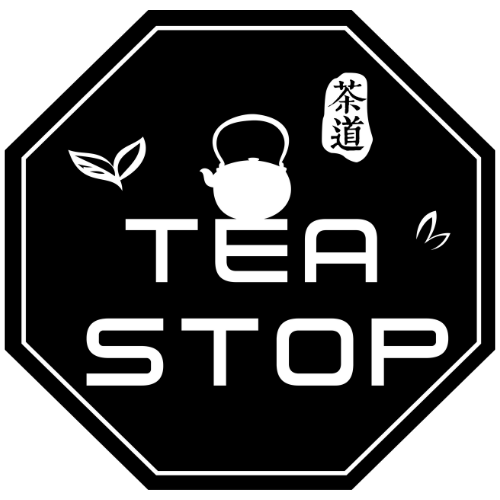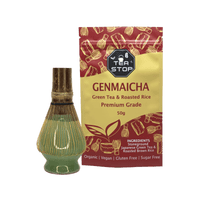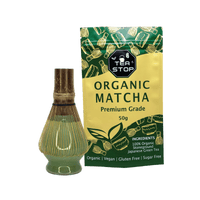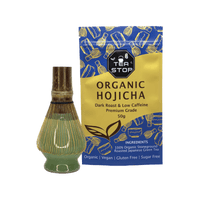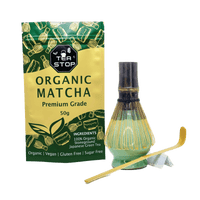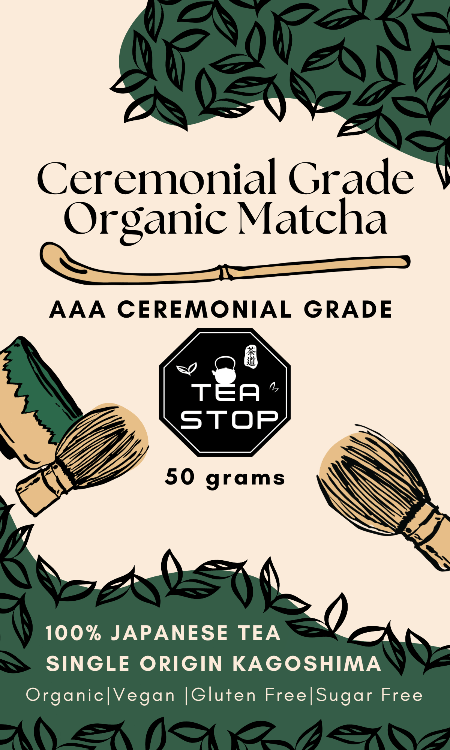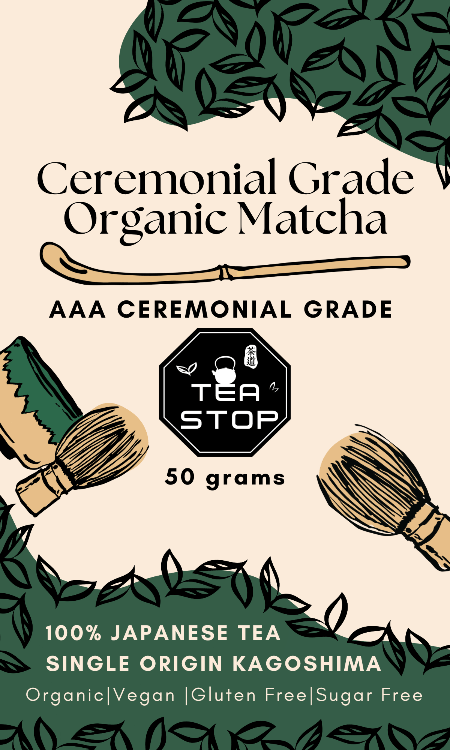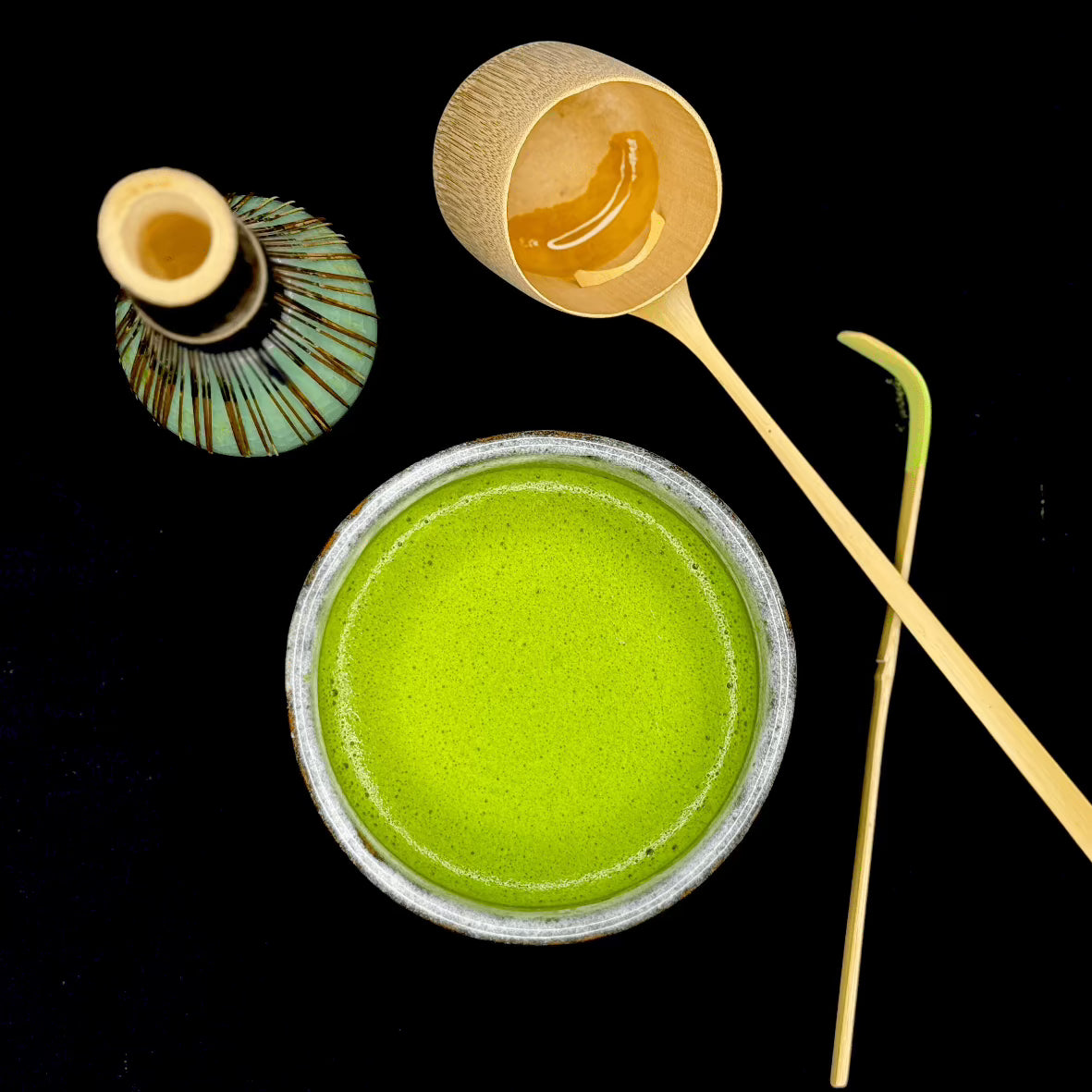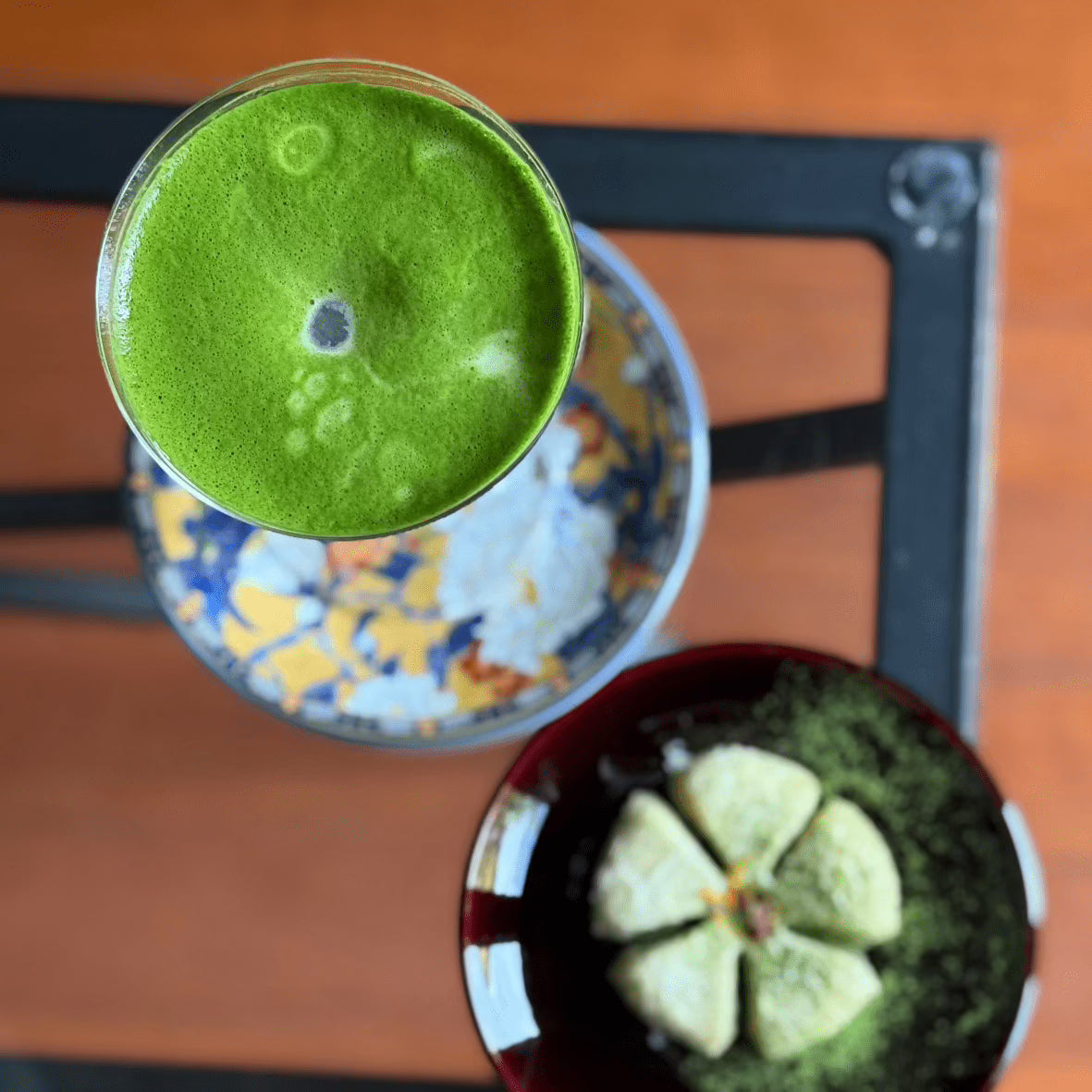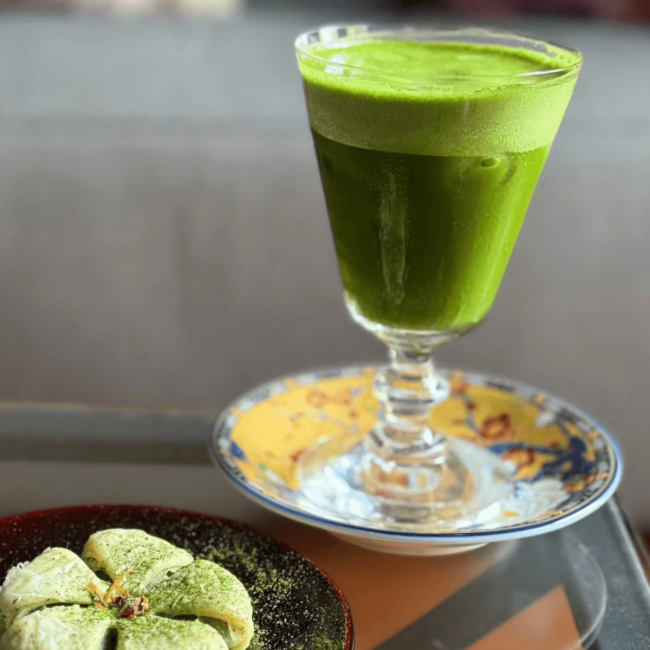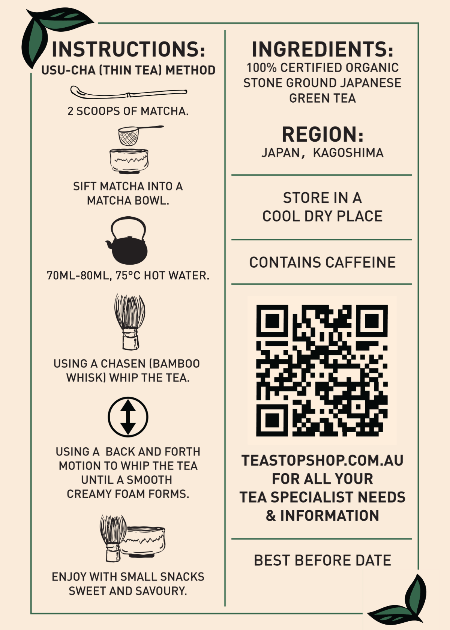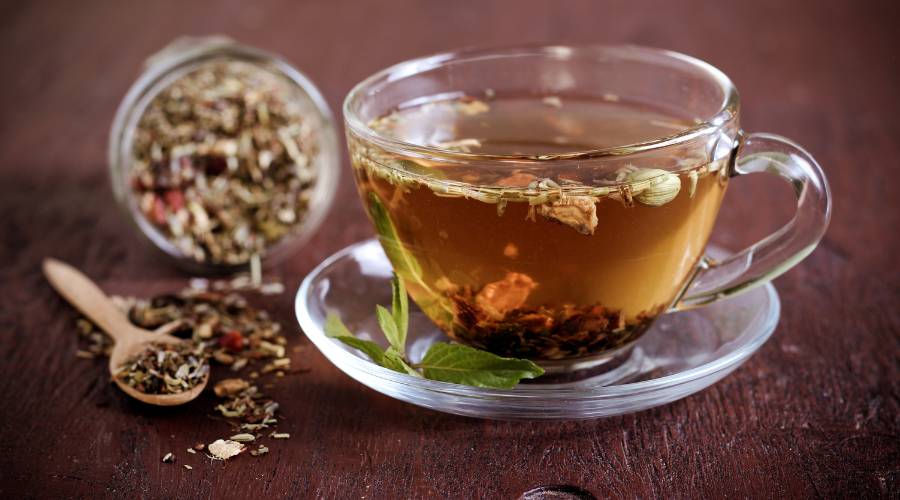
Decaf Tea: The Secret to Relaxation in a Cup
Share
In our busy lives, decaf tea is a source of calm. This caffeine-free drink has many health benefits without the nervousness that comes with regular tea. The antioxidants in decaf tea help our bodies stay healthy and support heart health.
As we deal with the challenges of modern life, it's important to find soothing drinks. A cup of decaf tea can turn an ordinary moment into a special one, giving us a peaceful break during the day. Besides its health benefits, decaf tea also offers warmth and subtle flavours.
Picture yourself enjoying your favourite blend, relishing every sip without worrying about caffeine keeping you awake. Decaf tea encourages you to relax, providing a peaceful moment with each sip—perfect for anyone looking to unwind in their daily routine.

Understanding Decaf Tea
Decaffeinated tea, often called decaf tea, is a delightful option for those seeking the rich flavours and health benefits of traditional teas without the stimulating effects of caffeine. While it retains the essence of its caffeinated counterparts, decaf tea undergoes a specific process to remove most of the caffeine content, making it a perfect choice for relaxation and unwinding.
Key Differences Between Decaf and Caffeinated Teas:
- Caffeine Content: Regular teas like black, green, or oolong naturally contain varying amounts of caffeine, which can lead to the well-known energy boost experienced by many tea drinkers. In contrast, decaf tea has undergone a process to extract most of its caffeine, typically leaving only about 2-5 milligrams per cup compared to approximately 40-70 milligrams in a standard cup of black tea.
- Tea Types: Both caffeinated and decaf options are available across different types, such as black, green, and herbal teas. Herbal teas like chamomile or rooibos are naturally caffeine-free and are often included in the broader category of “decaf” due to their soothing properties.
A frequent misconception is that decaf tea is entirely free from caffeine. However, despite the rigorous decaffeination processes, trace amounts may remain. This slight caffeine presence does not generally produce noticeable effects but allows enthusiasts to enjoy their favourite brews at any time of day without concern for sleepless nights.
Decaf tea offers a harmonious balance between flavourful indulgence and calming serenity—making it an ideal companion for those moments when you seek tranquillity in a cup.
The Decaffeination Process Explained
Decaffeination is a complex process that aims to remove caffeine from tea while preserving its natural flavours and health benefits. There are several methods used for decaffeination, each with its impact on the taste and nutritional properties of the tea.
1. Carbon Dioxide Extraction
Carbon dioxide extraction is a widely used method for decaffeinating tea. It involves the use of pressurised carbon dioxide (CO2) to selectively target and remove caffeine molecules from the tea leaves. This process is effective in preserving the tea's inherent flavour compounds, resulting in a final product that retains its robust taste and high antioxidant levels.
2. Water Processing (Swiss Water Method)
Another common technique is water processing, also known as the Swiss Water Method. In this method, the tea leaves are soaked in hot water to dissolve the caffeine. The solution is then passed through a filter that removes the caffeine while allowing other compounds, such as antioxidants, to remain intact. Although this method may slightly alter the flavour profile of the tea, it generally preserves most of its health benefits.
3. Ethyl Acetate Processing
Ethyl acetate processing is another decaffeination method that uses a natural solvent derived from fruit to extract caffeine. This process can sometimes impart a subtle fruity note to the tea, creating a unique taste experience while still maintaining essential antioxidants.
Each decaffeination process has its influence on the final product's taste and health benefits. By understanding these differences, you can make an informed choice when selecting a decaf tea that suits your palate and wellness goals.
Health Benefits of Embracing Decaf Tea
Decaf tea offers an array of health benefits that align closely with its caffeinated counterparts, yet with the added advantage of minimal caffeine content. Antioxidants such as flavanols and other bioactive compounds are abundant in decaf tea, playing a crucial role in promoting overall well-being. These components help combat oxidative stress, potentially reducing the risk of chronic diseases and supporting heart health.
While caffeine is often celebrated for its energy-boosting properties, it's important to recognise that decaf tea retains many of the essential benefits of regular tea without the stimulating effects. This makes it an ideal choice for those who are sensitive to caffeine or prefer to unwind without jitters.
Notably, decaf tea contains L-theanine, an amino acid revered for its ability to enhance relaxation and cognitive function. L-theanine works synergistically with the bioactive compounds in tea to foster a state of calm alertness, making it a perfect companion for mindfulness practices or winding down after a long day.
The subtle interplay between antioxidants and L-theanine presents a unique opportunity for tea enthusiasts to indulge in a soothing ritual while reaping health benefits. With each sip, decaf tea becomes more than just a beverage; it transforms into a moment of serene nourishment amidst life's hustle.
Exploring Popular Varieties: From Rooibos Earl Grey to Chamomile Delight
Herbal teas in the decaf category offer a wide range of health benefits, providing a gentle embrace of nature's goodness. These comforting brews are known for their calming properties and are often praised for their ability to support digestion, reduce stress, and promote restful sleep.
Among the various types of decaf tea available, Rooibos Earl Grey stands out as an elegant choice. This special blend combines the rich, nutty flavour of rooibos with the distinct citrus notes of bergamot oil. The result is a caffeine-free treat that delights the senses while nourishing your body with antioxidants.
Chamomile tea, another beloved classic, is treasured for its soothing effect. With its delicate floral scent and subtle apple-like taste, chamomile envelops you in calmness, making it the perfect option for unwinding after a long day. This herbal infusion has been traditionally used to promote sleep and relieve digestive discomfort.
For those looking for a refreshing twist, peppermint tea provides a brisk and energising experience. Its cool menthol essence not only awakens the taste buds but also aids digestion and helps relax muscles.
Whether you desire the zesty appeal of ginger or the gentle sweetness of lavender, exploring these popular decaf varieties takes you on a journey of flavour and wellness—each cup offering a unique escape from life's busyness.

Brewing Tips for Your Perfect Cup of Decaf Tea
Crafting the perfect cup of decaf tea hinges on understanding the nuances of brewing instructions, steeping times, and the choice between loose-leaf tea and bagged varieties. Each type of tea requires specific conditions to unleash its full potential.
Recommended Brewing Temperatures:
- Green and White Teas: Brew at a gentle 70-80°C to preserve delicate flavours.
- Black and Herbal Teas: A robust 90-100°C ensures full-bodied taste.
Ideal Steeping Times:
- Black Tea: Allow 3-5 minutes for a rich infusion.
- Green Tea: A swift 2-3 minutes captures its refreshing essence.
- Herbal Teas: 5-7 minutes maximises their soothing properties.
Advantages of Loose Leaf Tea:
Choosing loose-leaf tea over bagged options elevates your tea experience by offering:
- Enhanced Flavour: Loose leaves unfurl completely, releasing more nuanced flavours.
- Nutrient Retention: Higher quality with preserved nutrients and aroma.
- Greater Control: Customise strength and taste with ease.
Embarking on this mindful brewing journey not only enriches your palate but also enhances your overall relaxation ritual. By tailoring each step to suit the unique characteristics of your chosen decaf tea, you ensure a moment of tranquillity and indulgence in every sip.
Mindful Preparation: Elevating Your Decaf Tea Experience
Embracing the art of mindful matcha preparation and other decaf teas can transform your daily routine into a calming experience. This practice not only enhances flavour but also enriches the ritual, providing a moment of tranquility in our often hectic lives.
To truly savour your decaf tea, consider creating a relaxation ritual that aligns with your personal needs. This could include:
- Setting aside dedicated time for self-care, where you can indulge in the soothing warmth of your tea without distractions.
- Incorporating soothing aromatherapy by lighting a candle or using essential oils like lavender or chamomile to enhance the calming effects.
- Choosing a quiet space, surrounded by nature or comforting elements, helps you to focus on the present moment and the simple joy of sipping tea.
By integrating these practices, each cup becomes an opportunity to pause, reflect, and rejuvenate. The mindful preparation of decaf tea encourages us to slow down and appreciate not just the taste but the entire sensory experience. As you continue exploring this journey, let each sip be a reminder of serenity amidst life's chaos.
Conclusion: Sip Your Way to Serenity with Decaf Tea!
Decaf tea is a soothing beverage choice, inviting you to discover its myriad flavours and relaxation benefits. Each cup offers an opportunity for tranquillity amidst the chaos, encouraging exploration of different varieties until you find your personal favourite. Whether it's the gentle embrace of chamomile or the robust notes of rooibos Earl Grey, let each sip transport you to a serene state of mind. Embrace this journey into decaf tea, where every brew becomes a cherished moment of calm and reflection, nurturing both body and spirit in today’s fast-paced world.
What is decaf tea, and how does it differ from regular tea?
Decaf tea is a tea that has undergone a process to remove most of its caffeine content, making it a suitable choice for those looking to avoid caffeine jitters. Unlike regular caffeinated teas, decaf varieties allow you to enjoy the flavors and health benefits of tea without the stimulating effects of caffeine.
What are the common methods used for decaffeination?
Common decaffeination methods include carbon dioxide extraction and ethyl acetate processing. Each method impacts the flavor and antioxidant levels of the tea differently, with some methods preserving more of the original taste and health benefits than others.
What health benefits can I expect from drinking decaf tea?
Decaf tea is rich in antioxidants and bioactive compounds, which can promote overall well-being. It also contains L-theanine, an amino acid that may enhance relaxation and cognitive function, making it a soothing beverage choice.
What are some popular varieties of decaf tea?
Popular varieties of decaf tea include rooibos Earl Grey, chamomile, and peppermint tea. Each offers unique flavors and various health benefits associated with herbal teas, enticing your taste buds while providing a caffeine-free option.
How should I brew my decaf tea for the best flavor?
To brew your perfect cup of decaf tea, use recommended brewing temperatures specific to each type (green/white vs. black/herbal). Ideal steeping times range from 3-5 minutes for black teas. Additionally, using loose-leaf tea can enhance flavor extraction compared to bagged teas.
How can I create a mindful preparation ritual for enjoying decaf tea?
Creating a mindful preparation ritual involves setting aside dedicated time for self-care while enjoying your decaf tea. Incorporate calming practices such as aromatherapy or relaxation rituals to elevate your experience and make each cup a moment of tranquility amidst daily chaos.
